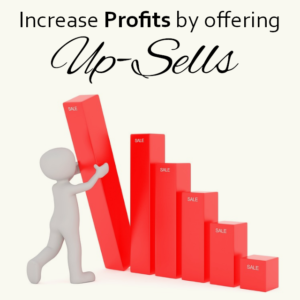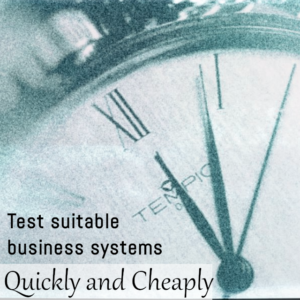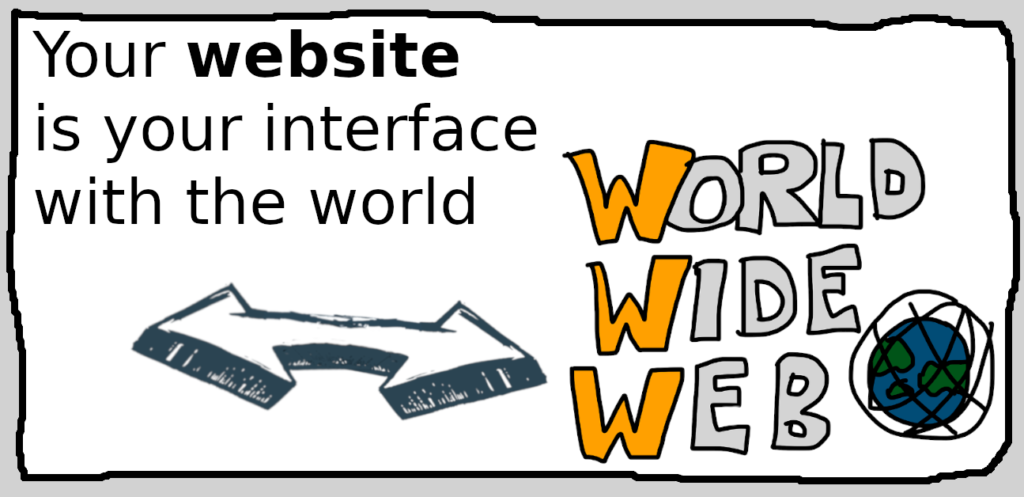
If you’ve not read the other 2 parts of this article yet . . .
click here to read the second page: about common types of profitable online business.
Combining different business types.
Different types of online business can often be combined together for improved results.
For example, a blogger or YouTube Channel influencer might use affiliate-marketing to monetise. Or an information-product creator might offer arbitraged outsourcing services to readers.
Or the “tribe-based selling” business model I detailed in the previous page . . . this can be used to find more customers or clients for almost any other type of business, whether online or off.
Things you learn for one type of online business can often be used in another (as well as there being some general things which are useful for most types of online business), such as many of the principles and details from selling information products being similar to what’s needed for reselling, and vice versa.
While it is good to focus on testing one business system at a time, it’s also a good idea to keep learning about online business in general, as you never know when something you’ve learned can be applied to make a difference to the system you’re working on currently.
Back end and customer/client chain
If you get the email address of a customer, you can then make them other offers, on an ongoing basis.
For example, if you sell a low-ticket information product about online business, you can then promote relevant high-ticket products, sold by webinar, to the same people. It’s found in some sectors, that at least 36% of customers who’ve bought one thing from you will buy from you again if you follow up with them.

Another concept is the up-sell, which can increase your profits from the same purchase action. The concept is that, as soon as your customer has agree to buy something, you immediately offer them a unique opportunity (known as a “one-time offer”) to buy something else which goes with it, or an up-graded version of the same product. There can be whole chains of up-sells, and down-sells too if the customer declines anything in the chain.
One coach I know of, tripled his profits in a year just by offering higher-priced options as well as his standard ones . . . once you’ve done a great job for someone, many of them will buy a higher-ticket option from you, if it is available.
Another great opportunity with some business models is to work with those before and after you in the chain of customer needs. Think what the customer or client needs before they need you, and offer to pay commission for referrals from businesses who already offer those things. And think what your customer or client will need after you . . . refer them to those businesses for a referral commission.
Where to find the best information
There are certainly some valuable things to be learned about general business principles from books.
Books I personally recommend about business include the whole “Rich Dad Poor Dad” series, MillionaireMaker, Emyth Revisited, and Good to Great (and others in that series).
However, most of the specifics for online business are best learned online, from courses by genuine experts, or from free advice on forums and discussion groups (although with those, be careful who you listen to!).

I recommend my own FaceBook Group for Online Business, where I will give you the best info I can on any questions you’d like to ask.
And another good place to learn is WarriorForum which has sections for many important areas of online business.
As already mentioned in the first part of this article, you will typically find much better information from free training by real experts, than you will from cheap courses (many of which are deceptive).
So here’s another great way to learn . . . I have a series of training calls by leading online business experts. I’ve learned SO much from training webinars such as these, and they are all free, so sign-up NOW :
You can also learn about business offline . . . go onto sites like Meetup and find entrepreneur events in your area (free or $15-$20).
To grow a profitable online business it is essential to make sure you understand the whole system and relevant statistics so you can determine which parts of your system are working well and which need improvement (get people on forums to tell you if your stats should be able to be improved).
It’s easy to change and improve many things as you go along, but start with a focused overall aim and a clear understanding of the business system and all relevant factors.
Be wary of the difference between what people say, compared to they will actually do. So, for example, a “coffee shop test” (where you offer to buy anyone a cup of coffee if they give you honest feedback about your business idea), might produce opinions which are misleading, because actual behaviour can be completely different to what people say, or even what they believe they will do.
If you want to find a mentor . . . my advice is to take action, get involved in online discussions, ask questions, help others when you can, and have a very specific area of your business system that you want help with.
Lean startup for internet business

Test suitable business systems quickly and cheaply, with the minimum necessary quality. Most online business methods don’t take long to test, if you understand the relevant factors . . . for example, when selling it can often make sense to start with a relatively low-priced item, then, once that is selling well, add up-sells or higher priced options, using a similar strategy.
I recommend using lean startup methodology. For more info on lean startup, see this article.
For some business systems, you might need a team, even from the beginning (although I recommend doing as much of the system as you can at the start, as that helps you understand it better).
It’s easy to outsource almost anything these days at places like Fiverr or UpWork, although be careful, as the value given by services there can vary considerably. For example, most of the SEO or traffic Gigs on Fiverr will do you more harm than good, so I don’t recommend them (except for specific jobs, such as submitting a press release, once you’ve checked the Domain Authority of each site they will submit to). On the other hand, creative or technical jobs can be great value there, including graphics, web-design or customisation.
If you want more details on how to outsource effectively, and avoid all the problems, have a look at the details of my guide “Expert Up-Scaling, Outsourcing and Automation“
It’s usually easy to split test with online systems (for example by using a WordPres Split test Plugin), so you find out in practice which option gets the best results. This was used by Timothy Ferriss, the author or “4 Hour Work Week” . . . he preferred a very different title, but did a quick $200 Google Ads test to see which title worked best for readers, and I assume started building an email-list of people who wanted to buy the book, while doing it.
Getting sales is what matters in business, because without sales, no money is being made! Do the minimum to get some sales, and improve everything else later.
Creating your business website

While some online business systems can be set up without your own website (such as by using FaceBook, Amazon, Ebay etc.) it’s usually best with most businesses, to have your own site, to look professional and so you can easily benefit from SEO, etc.
The two main components of creating your own website are the domain (yourwebsite.com) and the hosting (which is the system where the files which contain the website contents, are stored and made available to visitors to the website).
For the domain, you can either find a domain which represents something about your business (ideally the main benefit(s)), or a unique and memorable business name. The shorter the domain, the easier it will be to remember, and .com is best because that’s what people will assume it is if they don’t remember for sure.
While you can purchase domain and hosting separately, the hosting I use and recommend, BlueHost, gives you a free domain when you purchase your hosting with them, and it’s already set-up for you to use if you do it that way.
You also should consider a content management system, which makes it much easier to create and edit content on your site, as well as navigation and other functionality. I recommend WordPress, which is free, widely used, and has lots of benefits (including many great Plugins for added functionality, many of them free).
For details of exactly how to do all this, here’s my guide “Easy Website Creation with WordPress. – Domain, hosting, & WordPress installation, optimization, and customization.” (which is only $1), available on this page.
SEO

(Search Engine Optimisation – which means doing things so that Google gives you more free visitors).
I’ve given this a separate section in this article because so many people get it wrong. It applies to any online content, whether it’s your own website, or your Amazon listing etc. so is relevant to most online business methods.
SEO takes time (it used to be possible to improve rankings dramatically in a few days, but that will take weeks or months, these days), but most of it can be done free. And the results are ongoing, so if you do it right, you get lots more free visitors, long-term.
One of the main problems is that SEO has changed hugely over the last 10 years or so, and most people, even those giving advice on the subject or selling relevant services, have not kept up with the changes, so there is a lot of outdated advice, and services which will get you less visitors instead of more.
SEO is divided into . . .
- things you do on your website, known as “on-page SEO” and
- things done elsewhere, “off-page SEO”.
The basis of on-page SEO is creating the best content you can, making your website easy to navigate and to find what you want, and it is clear and easy to use.
Here are some additional on-page SEO tips:
- to make your website look professional to visitors and Google, includes pages: “about us”, “contact”, “privacy policy”, and “terms”
- make sure your website is responsive (changes layout so it is easy to read and use on any screen size
- make sure your website loads relatively quickly (there are free WordPress Plugins for this, such as “WP Fastest Cache”)
- install the Yoast SEO plugin, and read their notes on how to use it effectively
- make sure that every image on your site has a clear Alt Tag, which would usually be a key-phrase relevant to the image and the page it is on.
- add some relevant authority links in your content, to Wikipedia or other high-authority sites.
The most important rule for off-page SEO, is to never, ever make a link from another site to your content unless that other site has a Domain Authority of 25+ (you can check Domain Authority with the free MOZbar web-browser extension), and the content is at least somewhat relevant to yours.
Social-media marketing

Doing marketing and promotions on social-media is an important part of most online business methods today, and can even be the main focus of some of them.
For example, if you create links to your website, but don’t have any social-media Likes and Shares, Google finds this suspicious and it harms your SEO.
Some businesses get most of their visitors from social-media including YouTube, FaceBook, Instagram and Pinterest. Since different social-media platforms have different demographics, check to see which ones are the best fit for your business (or test them and see which works best).
Like SEO, social-media activity is something which is likely to generate results which build up over time, if done well, so getting only small results initially does not mean your’re doing anything wrong.
Look at what other successful businesses similar to yours are doing, and do something similar.
Like most parts of online business systems, social-media activity can be outsourced. For example, you can hire a social-media manager, or you can use a service like CrowdSearch to get social-media signals (Likes and Shares) and/or to increase your visitors time-on-site (which is another signal to Google that your content is good, so improves your SEO).
List-building
Building a mailing-list can improve the results from many online business systems, because you can build a relationship with people by giving them great value, which means they are more likely to buy from you, and, of course, you can keep in contact with them long-term.
To build an email list you need
- a method of capturing email addresses (unless you get them already as part of your business system, such as with eCommerce purchases), and a
- mailing-list management system.
A place for capturing email addresses is know as a squeeze-page, and the form where the visitor enters their email address is called the opt-in form. To get their email address you need to offer them something of value, such as a free ebook, mini-course or useful newsletter.
Once you’ve captured email addresses, you need to manage them . . . sending emails to them, allowing them to unsubscribe if they wish, etc. One of the best-known email management systems is MailChimp, which is free for up to 2,000 subscribers. There is an alternative I also recommend for some uses . . .
this alternative system allows multiple lists and unlimited subscribers (on some plans), as well as being a web-hosting system, funnel designer, and offering lots of other tools. I also find it’s mailing-list management tool to be clearer and easier to use than most. This system is not free, but you get a lot for a small monthly fee . . .
There are posts with more detailed info on list-building, including why deliverability is important, and why you should almost never buy a list, on my FaceBook Group for Online Business. And I’ll answer any questions you have, there.
Paid traffic advantages
There are various paid traffic systems, such as FaceBook ads, Google ads etc.
These can make a system relatively easy to upscale (compared to SEO which takes a long time to get results), but need testing and some expertise in order to get effective results. You can either take the time to do research and testing, and/or get an expert to help you.
Paid traffic can be implemented at the up-scaling stage, or can be the basis of an online business system if you have a realistic budget.
It’s possible to get great results with paid traffic, if you do it right. For example, I recently saw a post from a FaceBook ads manager who generated $1,219,331 for a client, at an 8X ROI (doing FB ads for a webinar). And it can work well for lower-ticket items as well, with some authors making a profit by using FaceBook ads for their ebooks.
Up-scale carefully

One of the huge advantages of an online business, is that most systems are relatively easy to up-scale, once you have developed a reliably profitable system.
But there are still mistakes to avoid, so I recommend you take care when up-scaling, do it gradually, and make sure you question all assumptions.
For example, many years ago with one of my online businesses, I had a profitable system on one small niche website, and assumed that it would be a good idea to do the same thing on a much bigger website covering a much wider range of products. This assumption was false, because Google gives a lot more visitors to content on a tightly-focused small site, than they do for the same exact info on a much broader website.
As your business grows, you also need to consider corporate structure, tax requirements and jurisdiction. I don’t think you should do these things until you’ve got a proven business model, because each business-model you test might have different requirements, and you won’t know what you need until you have done some testing and found what works well for you personally.
For example, if your business uses Amazon, there are different tax requirements in different US states, so that would be a consideration for your business jurisdiction.
When you are making a significant profit, you might also want to consider diversifying, especially if your business system relies significantly on a system owned by someone else.
For example, one of my early online businesses was based on helping buyers of Amazon products make better-informed buying decisions, based on my summary of what buyers had said about that product and competitive products. Suddenly, with no warning, Amazon prohibited any quotes, summaries or generalisations of buyer comments, and the whole business became worthless over-night (while there were other sellers of some of the products, none had enough buyer reviews to be usable).
And, to further safeguard your profits, use multiple payment systems (recently, PayPal shut down a lot of accounts used by affiliates and info-product creator), have alternate suppliers and outsourcers ready, etc.
To help you up-scale more effectively, click here here for my guide “Expert Up-Scaling, Outsourcing and Automation”
Conclusions.
This is a great time to start an online business, but lots of people get it wrong, so make sure you get the best information you can, learn from those with proven success, and keep finding ways to improve your results!
Any comments or questions? Join me on my FaceBook Group for Online Business, and I’ll be happy to help you as best I can.
If you want to start building an online business you can be proud of, I highly recommend these free workshops by leading experts . . .
